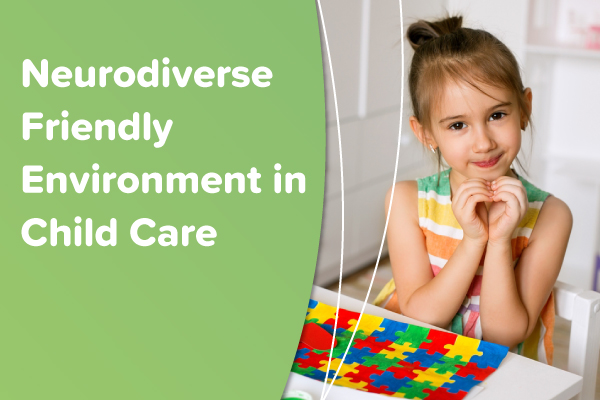Changing careers is a pretty natural progression in life. For many, a career change is a great way to shake things up, feel inspired or discover a new path.
In years past, previous generations were less likely to make multiple career changes and tended to pick a career and stick with it. Fast forward to today and the pathways to employment have become less linear. As a result, it’s expected that most of us will change careers several times in our lives.
Changing from one career to another might seem a little daunting, but if you’re considering switching to early childhood education and care, you might be surprised by how many skills are transferable.

Transitioning into a new career
Transferring from your current job to a career in early childhood education might seem complicated, but the good news is you might already have some important skills which will enable you to make the switch.
We call these skills ‘transferable’ or ‘adaptive skills’. Sometimes they are also called ‘interpersonal’ or ‘soft skills’, which basically means that they are human qualities – like communication and empathy – which facilitate working with others and make this a positive experience.
If you’re thinking about a career change, it’s worth considering what skills you already possess and how they might be relevant or useful in your new career. Many of our learners started out working in other industries.
You may have never considered the fact that people-facing industries like hospitality, hairdressing, sales, administration and retail have a lot in common with early childhood education and care. When you’re working with children, communication and interpersonal skills are essential.
What are ‘transferable skills’ and why are they important?
No matter where you work, having transferable skills – also known in training as ‘adaptive skills’ – is a wonderful attribute. It means that you’ll be able to adapt to the change and flow of the workplace, respond to challenges and thrive at every stage of your career.
It’s worth considering what it means to be adaptable. Adaptability is a willingness to change or adjust in response to varying conditions. Following on from this, having adaptive skills means being able to adjust to different conditions and workplace challenges in positive ways.
Transferable skills are highly important in the early learning setting. Working with children means working alongside society’s youngest groups, some of whom will have different ways of thinking and communicating. Learning to relate to children and to support their growth is not just about what you’ve studied, but about having the adaptive skills which allow you to take a flexible approach to daily challenges and find ways to communicate which are gentle, positive and instructive.
Adaptive skills make a difference to the lives of the children in your care, as making your work easier and more enjoyable.
Transferable skills valued in early childhood education and care
If you’ve worked in people-facing roles, chances are you’ve already had to learn and implement some of the skills which help you care for and relate to young children. While early childhood education and care is quite different to working in other sectors, there is a lot of crossover in terms of the skills you might be using.
Some of these skills include:
- Teamwork means being able to work with other educators, parents and children to find solutions and strategies.
- Emotional intelligence is the ability to regulate your emotions and understand the emotions of the kids in your care.
- Clear communication and strategies for negotiating tension is a must in early learning.
- Being organised is helpful and means that you will be able to manage time efficiently in a busy childcare centre.
- Critical reflection is an important aspect of your professional practice and will enable you to develop and grow.
Be rewarded when you change careers
Everyone has different reasons for wanting to change careers. If you are tired, searching for meaning or want to experience something new, pursuing a career in early learning might be just the right thing.
Post-pandemic the early learning sector is experiencing pivotal shifts and positive change. It’s a fantastic time to enter this growing sector, where some of the benefits include:
Limitless job opportunities and employment prospects
The upside of the current skills shortage is that the number of jobs available is almost limitless, meaning that you will have more flexibility and a greater say in where you work and for whom. You can also rest assured that your job is safe and that you will have a consistent source of income for the foreseeable future.
Opportunities to upskill and progress your career
Ongoing training is important, and once you’re working you’ll find many opportunities to develop your current skills and gain new ones. This might look like upskilling with a short course or group training. There will also be opportunities to progress your career, such as pathways to gaining a leadership qualification.
Variety
One of the best things about working with children is the variety you see on the job. There will be conversations you never thought of having, people you didn’t expect to meet, challenges you thought you couldn’t overcome and unexpected pleasures and rewards.
Flexibility
For some people, having flexibility in your job is essential. The good thing about early learning is that you will be able to organise your work hours to fit in with scheduling and other personal commitments. Many people note that the hours in early childhood education and care suit them in terms of flexibility – and you won’t have to work on the weekend!
The chance to make a difference
Sometimes the decision to change careers is prompted by the feeling that you’ve lost your purpose or want a chance to do something more meaningful. If making a difference in people’s lives is something you care about, there is no better opportunity than working in early childhood education and care.
Entering this fulfilling sector means discovering a sense of purpose, encouraging the next generation to flourish and feeling good about what you do.
Get in touch with the team at Practical Outcomes to find out how you can make the change to early childhood education and care.



